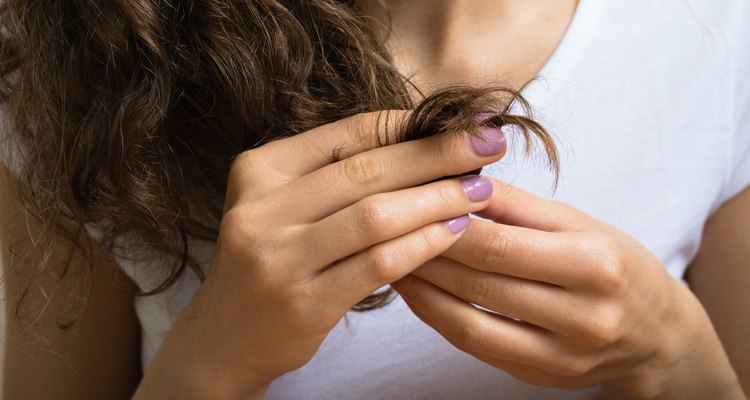
iprogressman/iStock/Getty Images
Dr. Miracle's formulates its damaged hair treatment as a deep conditioning mask. It's intended to sit on your hair and scalp for an extended period of time during which its various emollients and herbal extracts help moisturize and repair your hair's health. Though largely beneficial, Dr. Miracle's hair mask contains some ingredients that may pose a problem to your hair's health and appearance.
Parabens
The manufacturer adds two types of parabens--methylparaben and propylparaben--to its product to keep the conditioner from spoiling. These are very common in hair products. Unfortunately, the Northwestern Health Sciences University reports that several health concerns are linked to this chemical and suggests avoiding it. Health concerns include mild reactions like a skin rash, plus more serious consequences like impaired fertility.
Propylene Glycol
Propylene glycol helps a hair treatment to better penetrate your hair. Unfortunately, non-profit advocacy group CANCERactive warns that it's a potential carcinogenic. The Northwestern Health Sciences University also reports that it alters your skin's basic structure to allow chemicals to penetrate it better, thus raising your risk of toxicity related to all the other chemicals in the hair treatment.
Finally, a 2008 study published in the "Canadian Family Physician Journal" specifically notes propylene glycol in hair products as a potential danger for pregnant women and their developing babies, saying more research needs to be done.
Emollients
The damaged hair treatment mask is heavy in oily ingredients. This includes sunflower oil, olive oil, avocado oil, jojoba seed oil and clove oil. Although these emollients work as natural moisturizers to soften and hydrate your hair, they may be too heavy for fine or limp hair. They may also be too excessive for oily hair, and can clog your skin pores and increase your risk of acne breakouts if you have acne-prone skin.
Menthol
The hair treatment includes menthol, which can impart a fresh scent and cool, tingling sensation that may make the mask feel good. Unfortunately, it's a potentially harmful ingredient. The University of Minnesota says some individuals may be allergic and can experience respiratory problems when using a menthol-infused product. Additionally, haircare expert Paula Begoun says it's often purported to help with removing oil but has no real "effect...or benefit for hair." She also warns that menthol can seriously irritate your skin and create skin flakes and excessive scalp itchiness.
Related Articles

Neutrogena T-Gel Shampoo Ingredients

What Does Lemon Juice Do to Your Hair?

Lactic Acid in Hair
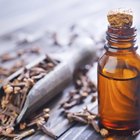
Clove Oil & Pimples
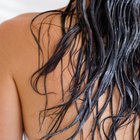
Extra Virgin Olive Oil as a Hair ...
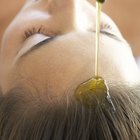
Homemade Treatments to Make Hair Thicker

Benefits of Soybean Oil for Hair

Can Very Short Hair Be Relaxed?
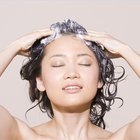
How to Shampoo Hair After a Perm

Ingredients in Hairfinity Vitamins

Chlorella and Hair Loss
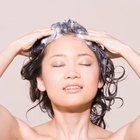
How to Make a Homemade Cleanser for ...

Nexxus Therappe Shampoo Ingredients

Alternative Treatments to Nizoral ...
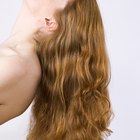
How to Remove Dandruff With Baking ...

Types of Hair Treatment

Hair Tips for Super Dry Hair
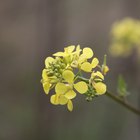
Dry Hair Treatment With Canola Oil

How to Make a Homemade Water-Based Hair ...

How to Get Rid of Built Up Soap & ...
References
- "Don't Go Shopping for Hair-Care Products Without Me"; Paula Begoun; 2004
- CANCERactive: Toxic Toiletries
- "Canadian Family Physician Journal"; Safety of Hair Products During Pregnancy; Angela Chua-Gocheco, et al.; October 2008
Writer Bio
Joshua Duvauchelle is a certified personal trainer and health journalist, relationships expert and gardening specialist. His articles and advice have appeared in dozens of magazines, including exercise workouts in Shape, relationship guides for Alive and lifestyle tips for Lifehacker. In his spare time, he enjoys yoga and urban patio gardening.
Photo Credits
iprogressman/iStock/Getty Images